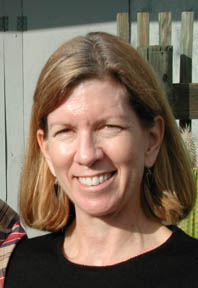
|
Dr. Jodie S. Holt
Chair, Department of Botany and Plant Sciences Chair's office: 2118 Batchelor Hall Office: 2133 Batchelor Hall Office phone: (951) 827-3801 jodie.holt@ucr.edu Chair's phone: (951) 827-4413 FAX (951) 827-4437 bpschair@citrus.ucr.edu Help, get me back to: University of California, Riverside, CNAS, My BPSC Site |
Research InterestsMy primary research interest is the integration of biological knowledge with the principles and practices of vegetation management. We study weeds and invasive species that are of serious concern in agricultural and wildland ecosystems of the southwestern US. Our approach is to use physiological and ecological theory to address fundamental questions about a system, generally at the individual or population level, the results of which can be used to inform management. Our projects focus on mechanisms and genetic correlates contributing to plant invasion in particular communities and habitats and how these mechanisms might be manipulated for successful management.Currently we are investigating the physiological and population ecology of the grassland invader, Cynara cardunculus (artichoke thistle) and the mechanisms by which it invades coastal grassland ecosystems. Analysis of genetic relatedness to its congeners, C. cardunculus var. scolymus (globe artichoke) and C. cardunculus var. altilis (cardoon) will aid in identifying the weedy type in California (putative var. sylvestris) and in understanding its origin. Using a combination of demographic and environmental data we are also applying phenological modeling approaches for the development of management strategies for this species. We are also studying invasion of riparian ecosystems by Arundo donax (giant reed), particularly the environmental and physiological factors that promote invasion and replacement of native species by A. donax and the impacts of this species on native communities. At the community level we are examining the functional attributes of riparian communities and their effects on A. donax recruitment success. Results of this work will be used in experiments to test ecologically based management approaches for A. donax removal and restoration of native riparian species in order to prevent reinvasion. We have recently begun to address the physiological basis for increasing spread of Brassica tournefortii, Sahara mustard, into southwestern US deserts by comparing this species to its congeners that differ in range. We are also exploring aspects of seed ecology that allow rapid and sustained invasion by this species into desert environments. |
|
|
|
|
